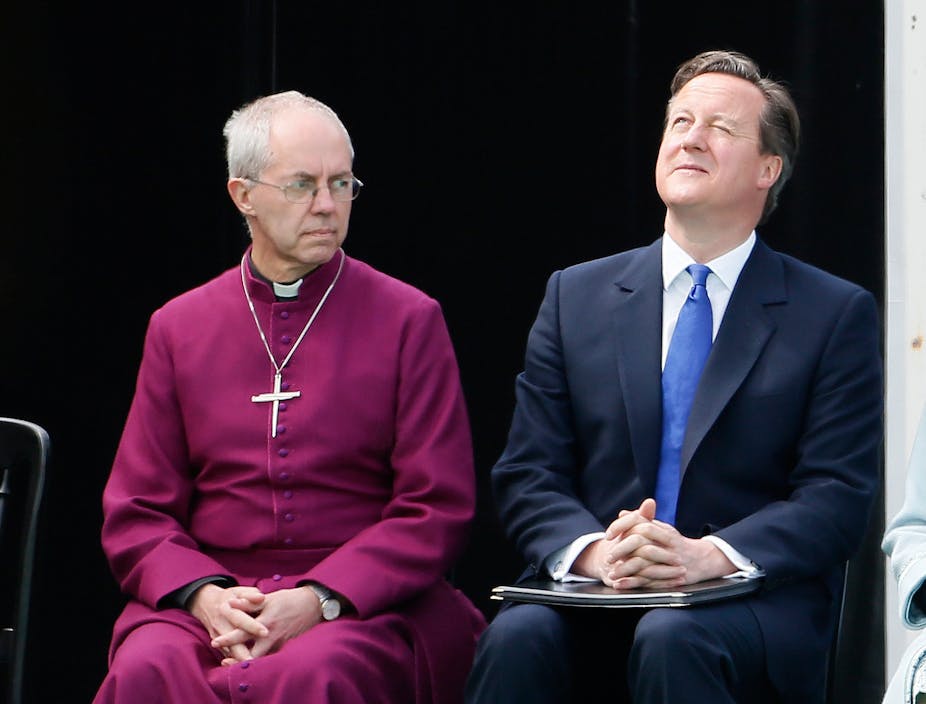The Church of England has taken the stunning decision to back military intervention overseas.
In the recently concluded synod, the Archbishop of Canterbury, Justin Welby, passed a motion to support a “forceful response” to create safe passage for refugees who are fleeing persecution. He made it clear that such an intervention would inevitably mean military action to help refugees in a region already sinking in violence and bloodshed.
This motion, which was supported overwhelmingly by the synod, is perplexing and misleading. It may appear to be aimed squarely at helping refugees, but Welby has stopped short of saying exactly how this safe passage is going to be created. No wonder it is already being interpreted as a tacit backing of David Cameron’s proposed bombing campaign in Syria.
It has come as a surprise to many Christians that the church would, in this day and age, support any form of armed conflict, no matter whether for peaceful ends or creating safe communities.

And no matter how genuine the church’s motivation to protect refugees, an implicit recognition and support of armed and violent conflict goes against the fundamental teaching of Jesus and therefore the church. Taking an eye for an eye is surely not how you provide safe passage.
The church is already involved in extensive local efforts to help the refugees. This ill thought-out proposal to allow armed and forceful international military intervention to shadow those efforts goes against the moral framework of compassion and love the church tries to preach.
By supporting armed intervention, the church is helping to grease a slippery slope towards an ever-larger military conflict. It is perpetuating a cycle of indiscriminate violence – and all in the name of safeguarding refugees.
Responding violently to violence goes against the non-violence practised by Jesus, even when protecting the victims of arbitrary violence. This knee-jerk reaction to support military action will have grave consequences for the public witness of the church in promoting peace and love, particularly during this season of Christmas.
The motion by the church not only undermines the good work the church is doing for refugees but consequently questions its commitment for working towards peace. By playing into the false sense of necessity of military intervention, the church is willingly sacrificing its critical moral role in pursuing a peaceful and just course of action.
On another unpleasant note, the motion is more than a little reminiscent of the crusades, fought in part to secure safe passage for Christian pilgrims to the Holy Land. The crusades which began in the 11th century under the guidance of Pope Urban II united the wider Christian Europe against the Islamic Middle East, primarily to safeguard Christian interests in the region.
The church is not suggesting that only Christian refugees are to be helped, but using crusades-esque language in relation to the fight against Islamic State risks exasperating an already volatile situation.
That the church’s leaders have so dismally failed to conceive of and support alternative methods is baffling. They could have backed the UN’s efforts to marshal diplomatic and peaceful negotiations, or stuck to supporting other humanitarian agencies to ensure safe passage for the refugees.
Instead, the synod’s decision to resign itself to supporting military action only underlines its members’ short-sightedness.

